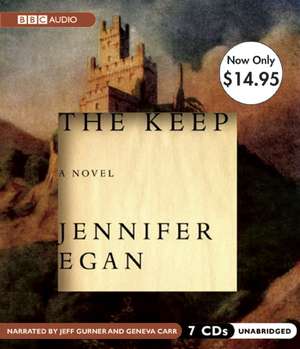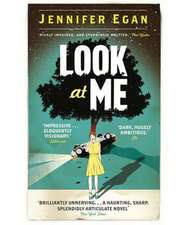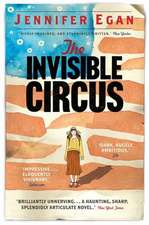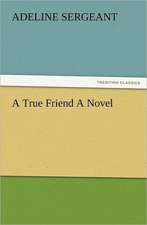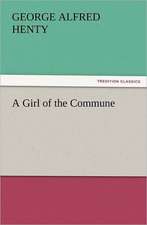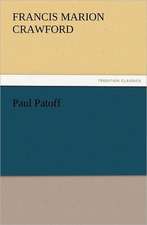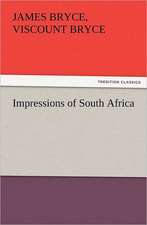The Keep
Autor Jennifer Egan Jeff Gurner, Geneva Carren Limba Engleză CD-Audio – 31 mai 2010
Two cousins, devastated by a childhood prank, reunite twenty years later to renovate a castle in Eastern Europe. The fortress has a bloody history that stretches back hundreds of years. Amid extreme paranoia and eerie silence, the men reenact the signal event of their youth, with even more catastrophic results. And as the full horror of their predicament unfolds, a third party—a prisoner, jailed for an unnamed crime—recounts an unforgettable story that brings the crimes of the past and present into stunning alignment.
| Toate formatele și edițiile | Preț | Express |
|---|---|---|
| Paperback (2) | 63.14 lei 3-5 săpt. | +7.73 lei 7-13 zile |
| Little Brown Book Group – 6 mar 2008 | 63.14 lei 3-5 săpt. | +7.73 lei 7-13 zile |
| Anchor Books – 30 iun 2007 | 98.56 lei 6-8 săpt. |
Preț: 76.32 lei
Nou
Puncte Express: 114
Preț estimativ în valută:
14.60€ • 15.93$ • 12.31£
14.60€ • 15.93$ • 12.31£
Indisponibil temporar
Doresc să fiu notificat când acest titlu va fi disponibil:
Se trimite...
Preluare comenzi: 021 569.72.76
Specificații
ISBN-13: 9781602839908
ISBN-10: 1602839905
Dimensiuni: 140 x 157 x 30 mm
Greutate: 0.25 kg
Editura: BBC AUDIOBOOKS
ISBN-10: 1602839905
Dimensiuni: 140 x 157 x 30 mm
Greutate: 0.25 kg
Editura: BBC AUDIOBOOKS
Notă biografică
Jennifer Egan is the author of Look at Me, The Invisible Circus, and the story collection Emerald City. Her stories have been published in The New Yorker, Harper’s Magazine, GQ, Zoetrope, and Ploughshares, and her nonfiction appears frequently in The New York Times Magazine. She lives with her husband and sons in Brooklyn.
Descriere
Descriere de la o altă ediție sau format:
A spellbinding work of literary suspense from National Book Award finalist Jennifer Egan.
A spellbinding work of literary suspense from National Book Award finalist Jennifer Egan.
Extras
The castle was falling apart, but at 2 a.m. under a useless moon, Danny couldn’t see this. What he saw looked solid as hell: two round towers with an arch between them and across that arch was an iron gate that looked like it hadn’t moved in three hundred years or maybe ever.
He’d never been to a castle before or even this part of the world, but something about it all was familiar to Danny. He seemed to remember the place from a long time ago, not like he’d been here exactly but from a dream or a book. The towers had those square indentations around the top that little kids put on castles when they draw them. The air was cold with a smoky bite, like fall had already come even though it was mid-August and people in New York were barely dressed. The trees were losing their leaves—Danny felt them landing in his hair and heard them crunching under his boots when he walked. He was looking for a doorbell, a knocker, a light: some way into this place or at least a way to find the way in. He was getting pessimistic.
Danny had waited two hours in a gloomy little valley town for a bus to this castle that never frigging came before he looked up and saw its black shape against the sky. Then he’d started to walk, hauling his Samsonite and satellite dish a couple of miles up this hill, the Samsonite’s puny wheels catching on boulders and tree roots and rabbit holes. His limp didn’t help. The whole trip had been like that: one hassle after another starting with the red eye from Kennedy that got towed into a field after a bomb threat, surrounded by trucks with blinky red lights and giant nozzles that were comforting up until you realized their job was to make sure the fireball only incinerated those poor suckers who were already on the plane. So Danny had missed his connection to Prague and the train to wherever the hell he was now, some German-sounding town that didn’t seem to be in Germany. Or anywhere else—Danny couldn’t even find it online, although he hadn’t been sure about the spelling. Talking on the phone to his Cousin Howie, who owned this castle and had paid Danny’s way to help out with the renovation, he’d tried to nail down some details.
Danny: I’m still trying to get this straight—is your hotel in Austria, Germany, or the Czech Republic?
Howie: Tell you the truth, I’m not even clear on that myself. Those borders are constantly sliding around.
Danny (thinking): They are?
Howie: But remember, it’s not a hotel yet. Right now it’s just an old—
The line went dead. When Danny tried calling back, he couldn’t get through.
But his tickets came the next week (blurry postmark)—plane, train, bus—and seeing how he was newly unemployed and had to get out of New York fast because of a misunderstanding at the restaurant where he’d worked, getting paid to go somewhere else—anywhere else, even the fucking moon—was not a thing Danny could say no to.
He was fifteen hours late.
He left his Samsonite and satellite dish by the gate and circled the left tower (Danny made a point of going left when he had the choice because most people went right). A wall curved away from the tower into the trees, and Danny followed that wall until woods closed in around him. He was moving blind. He heard flapping and scuttling, and as he walked the trees got closer and closer to the wall until finally he was squeezing in between them, afraid if he lost contact with the wall he’d get lost. And then a good thing happened: the trees pushed right through the wall and split it open and gave Danny a way to climb inside.
This wasn’t easy. The wall was twenty feet high, jagged and crumbly with tree trunks crushed into the middle, and Danny had a tricky knee from an injury connected to the misunderstanding at work. Plus his boots were not exactly made for climbing—they were city boots, hipster boots, somewhere between square-tipped and pointy—his lucky boots, or so Danny thought a long time ago, when he bought them. They needed resoling. The boots were skiddy even on flat city concrete, so the sight of Danny clawing and scrambling his way up twenty feet of broken wall was not a thing he would’ve wanted broadcast. But finally he made it, panting, sweating, dragging his sore leg, and hoisted himself onto a flat walkway-type thing that ran on top of the wall. He brushed off his pants and stood up.
It was one of those views that make you feel like God for a second. The castle walls looked silver under the moon, stretched out over the hill in a wobbly oval the size of a football field. There were round towers every fifty yards or so. Below Danny, inside the walls, it was black—pure, like a lake or outer space. He felt the curve of big sky over his head, full of purplish torn-up clouds. The castle itself was back where Danny had started out: a clump of buildings and towers jumbled together. But the tallest tower stood off on its own, narrow and square with a red light shining in a window near the top.
Looking down made something go easier in Danny. When he first came to New York, he and his friends tried to find a name for the relationship they craved between themselves and the universe. But the English language came up short: perspective, vision, knowledge, wisdom—those words were all too heavy or too light. So Danny and his friends made up a name: alto. True alto worked two ways: you saw but also you could be seen, you knew and were known. Two-way recognition. Standing on the castle wall, Danny felt alto—the word was still with him after all these years, even though the friends were long gone. Grown up, probably.
Danny wished he’d brought his satellite dish to the top of this wall. He itched to make some calls—the need felt primal, like an urge to laugh or sneeze or eat. It got so distracting that he slithered back down off the wall and backtracked through those same pushy trees, dirt and moss packed under his longish fingernails. But by the time he got back to the gate his alto was gone and all Danny felt was tired. He left the satellite dish in its case and found a flat spot under a tree to lie down. He made a pile out of leaves. Danny had slept outside a few times when things got rough in New York, but this was nothing like that. He took off his velvet coat and turned it inside out and rolled it into a pillow at the foot of the tree. He lay on the leaves faceup and crossed his arms over his chest. More leaves were coming down. Danny watched them spinning, turning against the half-empty branches and purple clouds, and felt his eyes start to roll back into his head. He was trying to come up with some lines to use on Howie—
Like: Hey man, your welcome mat could use a little work.
Or else: You’re paying me to be here, but I’m figuring you don’t want to pay your guests.
Or maybe: Trust me, outdoor lighting is gonna rock your world.
—just so he’d have some things to say if there was a silence. Danny was nervous about seeing his cousin after so long. The Howie he knew as a kid you couldn’t picture grown up—he’d been wrapped in that pear-shaped girl fat you see on certain boys, big love handles bubbling out of the back of his jeans. Sweaty pale skin and a lot of dark hair around his face. At age seven or eight, Danny and Howie invented a game they’d play whenever they saw each other at holidays and family picnics. Terminal Zeus it was called, and there was a hero (Zeus), and there were monsters and missions and runways and airlifts and bad guys and fireballs and high-speed chases. They could play anywhere from a garage to an old canoe to underneath a dining room table, using whatever they found: straws, feathers, paper plates, candy wrappers, yarn, stamps, candles, staples, you name it. Howie thought most of it up. He’d shut his eyes like he was watching a movie on the backs of his eyelids that he wanted Danny to see: Okay, so Zeus shoots Glow-Bullets at the enemy that make their skin light up so now he can see them through the trees and then—blam!—he lassos them with Electric Stunner-Ropes!
Sometimes he made Danny do the talking—Okay, you tell it: what does the underwater torture dungeon look like?—and Danny would start making stuff up: rocks, seaweed, baskets of human eyeballs. He got so deep inside the game he forgot who he was, and when his folks said Time to go home the shock of being yanked away made Danny throw himself on the ground in front of them, begging for another half hour, please! another twenty minutes, ten, five, please, just one more minute, pleasepleaseplease? Frantic not to be ripped away from the world he and Howie had made.
The other cousins thought Howie was weird, a loser, plus he was adopted, and they kept their distance: Rafe especially, not the oldest cousin but the one they all listened to. You’re so sweet to play with Howie, Danny’s mom would say. From what I understand, he doesn’t have many friends. But Danny wasn’t trying to be nice. He cared what his other cousins thought, but nothing could match the fun of Terminal Zeus.
When they were teenagers, Howie changed—overnight was what everyone said. He had a traumatic experience and his sweetness drained away and he turned moody, anxious, always wiggling a foot and muttering King Crimson lyrics under his breath. He carried a notebook, even at Thanksgiving it was there in his lap with a napkin on it to catch the gravy drips. Howie made marks in that book with a flat sweaty pencil, looking around at different family members like he was trying to decide when and how they would have to die. But no one had ever paid much attention to Howie. And after the change, the traumatic incident, Danny pretended not to.
Of course they talked about Howie when he wasn’t there, oh yeah. Howie’s troubles were a favorite family topic, and behind the shaking heads and oh it’s so sads you could hear the joy pushing right up through because doesn’t every family like having one person who’s fucked up so fantastically that everyone else feels like a model citizen next to him? If Danny closed his eyes and listened hard he could still pick up some of that long-ago muttering like a radio station you just barely hear: Howie trouble drugs did you hear he was arrested such an unattractive boy I’m sorry but can’t May put him on a diet he’s a teenager no it’s more than that I have teenagers you have teenagers I blame Norm for pushing adoption you never know what you’re getting it all comes down to genes is what they’re learning some people are just bad or not bad but you know exactly not bad but just exactly that’s it: trouble.
Danny used to get a weird feeling, overhearing this stuff when he came in the house and his mom was talking on the phone to one of his aunts about Howie. Dirt on his cleats after winning a game, his girlfriend Shannon Shank, who had the best tits on the pom squad and maybe the whole school all set to give him a blow job in his bedroom because she always did that when he won, and thank God he won a lot. Hiya, Mom. That square of purple blue almost night outside the kitchen window. Shit, it hurt Danny to remember this stuff, the smell of his mom’s tuna casserole. He’d liked hearing those things about Howie because it reminded him of who he was, Danny King, suchagoodboy, that’s what everyone said and what they’d always said but still Danny liked hearing it again, knowing it again. He couldn’t hear it enough.
That was memory number one. Danny sort of drifted into it lying there under the tree, but pretty soon his whole body was tensed to the point where he couldn’t lie still. He got up, swiping twigs off his pants and feeling pissed off because he didn’t like remembering things. Walking backwards was how Danny thought of that and it was a waste of valuable resources anywhere, anytime, but in a place he’d spent twenty-four hours trying to escape to it was fucking ridiculous.
Danny shook out his coat and pulled it back over his arms and started walking again, fast. This time he went right. At first there was just forest around him, but the trees started thinning out and the slant under his feet got steeper until Danny had to walk with his uphill leg bent, which sent splinters of pain from his knee to his groin. And then the hill dropped away like someone had lopped it off with a knife and he was standing on the edge of a cliff with the castle wall pushed right up against it, so the wall and the cliff made one vertical line pointing up at the sky. Danny stopped short and looked over the cliff’s edge. Below, a long way down: trees, bushy black with a few lights packed deep inside that must be the town where he’d waited for the bus.
Alto: he was in the middle of frigging nowhere. It was extreme, and Danny liked extremes. They were distracting.
If I were you, I’d get a cash deposit before I started asking people to spelunk.
Danny tilted his head back. Clouds had squeezed out the stars. The wall seemed higher on this side of the castle. It curved in and then back out again toward the top, and every few yards there was a narrow gap a few feet above Danny’s head. He stood back and studied one of these openings—vertical and horizontal slits meeting in the shape of a cross—and in the hundreds of years since those slits had been cut, the rain and snow and what-have-you must have opened up this one a little bit more. Speaking of rain, a light sprinkling was starting that wasn’t much more than a mist, but Danny’s hair did a weird thing when it got wet that he couldn’t fix without his blow dryer and a certain kind of mousse that was packed away in the Samsonite, and he didn’t want Howie to see that weird thing. He wanted to get the fuck out of the rain. So Danny took hold of some broken bits of wall and used his big feet and bony fingers to claw his way up to the slot. He jammed his head inside to see if it would fit and it did, with just a little room to spare that was barely enough for his shoulders, the widest part of him, which he turned and slid through like he was sticking a key in a lock. The rest of him was easy. Your average adult male would’ve needed a shrinking pill to get through this hole, but Danny had a certain kind of body—he was tall but also bendable, adjustable, you could roll him up like a stick of gum and then unroll him. Which is what happened now: he unraveled himself in a sweaty heap on a damp stone floor.
He was in an ancient basementy place that had no light at all and a smell Danny didn’t like: the smell of a cave. A low ceiling smacked his forehead a couple of times and he tried walking with his knees bent, but that hurt his bad knee too much. He held still and straightened up slowly, listening to sounds of little creatures scuttling, and felt a twist of fear in his gut like someone wringing out a rag. Then he remembered: there was a mini-flashlight on his key chain left over from his club days—shining it into somebody’s eyes you could tell if they were on E or smack or Special K. Danny flicked it on and poked the little beam at the dark: stone walls, slippery stone under his feet. Movement along the walls. Danny’s breath came quick and shallow, so he tried slowing it down. Fear was dangerous. It let in the worm: another word Danny and his friends had invented all those years ago, smoking pot or doing lines of coke and wondering what to call that thing that happened to people when they lost confidence and got phony, anxious, weird. Was it paranoia? Low self-esteem? Insecurity? Panic? Those words were all too flat. But the worm, which is the word they finally picked, the worm was three-dimensional: it crawled inside a person and started to eat until everything collapsed, their whole lives, and they ended up getting strung out or going back home to their folks or being admitted to Bellevue or, in the case of one girl they all knew, jumping off the Manhattan Bridge.
More walking backward. And it wasn’t helping, it was making things worse.
Danny took out his cell phone and flipped it open. He didn’t have international service, but the phone lit up, searching, and just seeing it do that calmed Danny down, like the phone had powers—like it was a Forcefield Stabilizer left over from Terminal Zeus. True, he wasn’t connected to anyone right at that second, but in a general way he was so connected that his connectedness carried him through the dry spells in subways or certain deep buildings when he couldn’t actually reach anyone. He had 304 Instant Messaging usernames and a buddy list of 180. Which is why he’d rented a satellite dish for this trip—a drag to carry, an airport security nightmare, but guaranteed to provide not just cell phone service but wireless Internet access anywhere on planet earth. Danny needed this. His brain refused to stay locked up inside the echo chamber of his head—it spilled out, it overflowed and poured across the world until it was touching a thousand people who had nothing to do with him. If his brain wasn’t allowed to do this, if Danny kept it locked up inside his skull, a pressure began to build.
He started walking again, holding the phone in one hand, the other hand up in the air so he’d know when to duck. The place felt like a dungeon, except somehow Danny remembered that dungeons in old castles were usually in the tower—maybe that was the tall square thing he’d seen from the wall with the red light on top: the dungeon. More likely this place had been a sewer.
If you ask me, mother earth could use a little mouthwash.
But that wasn’t Danny’s line, that was Howie’s. He was heading into memory number two, I might as well tell you that straight up, because how I’m supposed to get him in and out of all these memories in a smooth way so nobody notices all the coming and going I don’t know. Rafe went first with the flashlight, then Howie. Danny came last. They were all pretty punchy, Howie because his cousins had singled him out to sneak away from the picnic, Danny because there was no bigger thrill in the world than being Rafe’s partner in crime, and Rafe—well, the beautiful thing about Rafe was you never knew why he did anything.
Let’s show Howie the cave.
Rafe had said this softly, looking sideways at Danny through those long lashes he had. And Danny went along, knowing there would be more.
Howie stumbled in the dark. He had a notebook under one elbow. They hadn’t played Terminal Zeus in more than a year. The game ended without talking—one Christmas Eve, Danny just avoided Howie and went off with his other cousins instead. Howie tried a couple of times to come near, catch Danny’s eye, but he gave up easily.
Danny: That notebook’s messing up your balance, Howie.
Howie: Yeah, but I need it.
Need it why?
For when I get an idea.
Rafe turned around and shined the flashlight straight at Howie’s face. He shut his eyes.
Rafe: What’re you talking about, get an idea?
Howie: For D and D. I’m the dungeon master.
Rafe turned the beam away. Who do you play with?
My friends.
Danny felt a little stunned, hearing that. Dungeons and Dragons. He had a kind of body memory of Terminal Zeus, the feel of dissolving into that game. And it turned out the game hadn’t stopped. It had gone on without him.
Rafe: You sure you’ve got any friends, Howie?
Aren’t you my friend, Rafe? And then Howie laughed and they all did. He was making a joke.
Rafe: This kid is actually pretty funny.
Which made Danny wonder if this could be enough—them being in the boarded-up cave where no one was allowed to go. If maybe nothing else would have to happen. Danny wished very hard for this.
Here’s how the cave was laid out: first a big round room with a little bit of daylight in it, then an opening where you had to stoop to get through into another room that was dark, and then a hole you crawled through into room three, where the pool was. Danny had no idea what was beyond that.
They all got quiet when they saw the pool: creamy whitish green, catching Rafe’s flashlight beam and squiggling its light over the walls. It was maybe six feet wide and clear, deep.
Howie: Shit, you guys. Shit. He opened up his notebook and wrote something down.
Danny: You brought a pencil?
Howie held it up. It was one of those little green pencils they gave you at the country club to sign your check. He said: I used to bring a pen, but it kept leaking on my pants.
Rafe gave a big laugh and Howie laughed too, but then he stopped, like maybe he wasn’t supposed to laugh as much as Rafe.
Danny: What did you write?
Howie looked at him: Why?
I don’t know. Curious.
I wrote green pool.
Rafe: You call that an idea?
They were quiet. Danny felt a pressure building in the cave like someone had asked him a question and was getting sick of waiting for an answer. Rafe. Now wondering why Danny’s older cousin had so much power over him is like wondering why the sun shines or why the grass grows. There are people out there who can make other people do things, that’s all. Sometimes without asking. Sometimes without even knowing what they want done.
Danny went to the edge of the pool. Howie, he said, there’s a shiny thing down there at the bottom. You see it?
Howie came over and looked. Nope.
There, down there.
Danny squatted next to the pool and Howie did, too, wobbling on the balls of his big feet.
Danny put his hand on his cousin’s back. He felt the softness of Howie, how warm he was through his shirt. Maybe Danny had never touched his cousin before, or maybe it was just knowing right then that Howie was a person with a brain and a heart, all the stuff Danny had. Howie clutched his notebook against his side. Danny saw the pages shaking and realized his cousin was scared—Howie felt the danger pulling in around him. Maybe he’d known all along. But he turned his face to Danny with a look of total trust, like he knew Danny would protect him. Like they understood each other. It happened faster than I’m making it sound: Howie looked at Danny and Danny shut his eyes and shoved him into the pool. But even that’s too slow: Look. Shut. Shove.
Or just shove.
There was the weight of Howie tipping, clawing arms and legs, but no sound Danny could remember, not even a splash. Howie must’ve yelled, but Danny didn’t hear a yell, just the sounds of him and Rafe wriggling out of there and running like crazy, Rafe’s flashlight beam strobing the walls, bursting out of the cave into a gush of warm wind, down the two big hills and back to the picnic (where no one missed them), Danny feeling that ring around him and Rafe, a glowing ring that held them together. They didn’t say a word about what they’d done until a couple hours later when the picnic was winding down.
Danny: Shit. Where the hell is he?
Rafe: Could be right underneath us.
Danny looked down at the grass. What do you mean, underneath us?
Rafe was grinning. I mean we don’t know which way he went.
By the time everyone started fanning out, looking for Howie, something had crawled inside Danny’s brain and was chewing out a pattern like those tunnels, all the ways Howie could’ve gone deeper inside the caves, under the hills. The mood was calm. Howie had wandered off somewhere was what everyone seemed to be thinking—he was fat, he was weird, there was no blood tie, and no one was blaming Danny for anything. But his Aunt May looked more scared than Danny had ever seen a grown-up look, a hand on her throat like she knew she’d lost her boy, her one child, and seeing how far things had gone made Danny even more petrified to say what he knew he had to say—We tricked him, Rafe and me; we left him in the caves—because that handful of words would change everything: they would all know what he’d done, and Rafe would know he’d told, and beyond that Danny’s mind went blank. So he waited one more second before opening his mouth, and then one more, another and another, and every second he waited seemed to drive some sharp thing deeper into Danny. Then it was dark. His pop put a hand on Danny’s head (suchagoodboy) and said, They’ve got plenty of people looking, son. You’ve got a game tomorrow.
Riding back in the car, Danny couldn’t get warm. He pulled old blankets over himself and kept the dog in his lap, but his teeth knocked together so hard that his sister complained about the noise and his mom said, You must be coming down with something, honey. I’ll run a hot bath when we get home.
Danny went back to the caves by himself a few times after that. He’d walk alone up the hills to the boarded-up mouth, and mixed in with the sounds of dry grass was his cousin’s voice howling up from underground: no and please and help. And Danny would think: Okay, now—now! and feel a rising up in himself at the idea of finally saying those words he’d been holding inside all this time: Howie’s in the caves; we left him in the caves, Rafe and I, and just imagining this gave Danny a rush of relief so intense it seemed he would almost pass out, and at the same time he’d feel a shift around him like the sky and earth were changing places, and a different kind of life would open up, light and clear, some future he didn’t realize he’d lost until that minute.
But it was too late. Way, way too late for any of that. They’d found Howie in the caves three days later, semiconscious. Every night Danny would expect his pop’s sharp knock on his bedroom door and frantically rehearse his excuses—It was Rafe and I’m just a kid—until they ran together in a loop—It was Rafe I’m just a kid itwasRafeI’mjustakid—the loop played even when Danny was doing his homework or watching TV or sitting on the john, itwasRafeI’mjustakid, until it seemed like everything in Danny’s life was the witness he needed to prove he was still himself, still Danny King exactly like before: See, I scored a goal! See, I’m hanging with my friends! But he wasn’t one hundred percent there, he was watching, too, hoping everyone would be convinced. And they were.
And after months and months of this faking, Danny started to believe in it again. All the normal things that had happened to him since the cave made a crust over that day, and the crust got thicker and thicker until Danny almost forgot about what was underneath.
And when Howie got better, when he could finally be alone in a room without his mother, when he could sleep with the lights off again, he was different. After the traumatic incident his sweetness was gone and he got into drugs and eventually bought a gun and tried to rob a 7-Eleven, and they sent him away to reform school.
After Rafe died three years later (killing two girls from his class at Michigan in his pickup truck), the family picnics stopped. And by the time they started up again, Danny wasn’t going home anymore.
That was memory number two.
So now back to Danny, walking with his arms up and his cell phone on through the basement or dungeon or whatever it was in a castle that belonged to Howie. He’d come a long way to meet his cousin here, and his reasons were practical: making money, getting the hell out of New York. But also Danny was curious. Because over the years, news about Howie kept reaching him through that high-speed broadcasting device known as a family:
1. Bond trader
2. Chicago
3. Insane wealth
4. Marriage, kids
5. Retirement at thirty-four
And each time one of those chunks of news got to Danny, he’d think, See, he’s okay. He’s fine. He’s better than fine! and feel a bump of relief and then another bump that made him sit down wherever he was and stare into space. Because something hadn’t happened that should’ve happened to Danny. Or maybe the wrong things had happened, or maybe too many little things had happened instead of one big thing, or maybe not enough little things had happened to combine into one big thing.
Bottom line: Danny didn’t know why he’d come all this way to Howie’s castle. Why did I take a writing class? I thought it was to get away from my roommate, Davis, but I’m starting to think there was another reason under that.
You? Who the hell are you? That’s what someone must be saying right about now. Well, I’m the guy talking. Someone’s always doing the talking, just a lot of times you don’t know who it is or what their reasons are. My teacher, Holly, told me that.
I started the class with a bad attitude. For the second meeting I wrote a story about a guy who fucks his writing teacher in a broom closet until the door flies open and all the brooms and mops and buckets come crashing out and their bare asses are shining in the light and they both get busted. It got a lot of laughs while I was reading it, but when I stopped reading the room went quiet.
Okay, Holly says. Reactions?
No one has a reaction.
Come on, folks. Our job is to help Ray do the very best work he can do. Something tells me this may not be it.
More quiet. Finally I say: It was just a joke.
No one’s laughing, she says.
They were, I say. They laughed.
Is that what you are, Ray? A joke?
I think: What the fuck? She’s looking at me but I can’t make myself look back.
She says: I bet there are people out there who’d tell me Yes, Ray’s a joke. Who’d tell me you’re trash. Am I right?
Now there’s muttering: Ow, and Shit, and What about that, Ray-man? and I know they expect me to be pissed, and I know I’m supposed to be pissed and I am pissed, but not just that. Something else.
There’s the door, she tells me, and points. Why don’t you just walk out?
I don’t move. I can walk out the door, but then I’d have to stand in the hall and wait.
What about that gate? She’s pointing out the window now. The gate is lit up at night: razor wire coiled along the top, the tower with a sharpshooter in it. Or what about your cell doors? she asks. Or block gates? Or shower doors? Or the mess hall doors, or the doors to the visitor entrance? How often do you gentlemen touch a doorknob? That’s what I’m asking.
I knew the minute I saw Holly that she’d never taught in a prison before. It wasn’t her looks—she’s not a kid, and you can see she hasn’t had it easy. But people who teach in prisons have a hard layer around them that’s missing on Holly. I can hear how nervous she is, like she planned every word of that speech about the doors. But the crazy thing is, she’s right. The last time I got out, I’d stand in front of doors and wait for them to open up. You forget what it’s like to do it yourself.
She says, My job is to show you a door you can open. And she taps the top of her head. It leads wherever you want it to go, she says. That’s what I’m here to do, and if that doesn’t interest you then please spare us all, because this grant only funds ten students, and we only meet once a week, and I’m not going to waste everyone’s time on bullshit power struggles.
She comes right to my desk and looks down. I look back up. I want to say, I’ve heard some cheesy motivational speeches in my time, but that one’s a doozy. A door in our heads, come on. But while she was talking I felt something pop in my chest.
You can wait outside, she says. It’s only ten more minutes.
I think I’ll stay.
We look at each other. Good, she says.
. . .
So when Danny finally spotted a light in that castle basement and realized it was a door with light coming in around it, when his heart went pop in his chest and he went over there and gave it a shove and it opened right up into a curved stairwell with a light on, I know what that was like. Not because I’m Danny or he’s me or any of that shit—this is all just stuff a guy told me. I know because after Holly mentioned that door in our heads, something happened to me. The door wasn’t real, there was no actual door, it was just figurative language. Meaning it was a word. A sound. Door. But I opened it up and walked out.
From the Hardcover edition.
He’d never been to a castle before or even this part of the world, but something about it all was familiar to Danny. He seemed to remember the place from a long time ago, not like he’d been here exactly but from a dream or a book. The towers had those square indentations around the top that little kids put on castles when they draw them. The air was cold with a smoky bite, like fall had already come even though it was mid-August and people in New York were barely dressed. The trees were losing their leaves—Danny felt them landing in his hair and heard them crunching under his boots when he walked. He was looking for a doorbell, a knocker, a light: some way into this place or at least a way to find the way in. He was getting pessimistic.
Danny had waited two hours in a gloomy little valley town for a bus to this castle that never frigging came before he looked up and saw its black shape against the sky. Then he’d started to walk, hauling his Samsonite and satellite dish a couple of miles up this hill, the Samsonite’s puny wheels catching on boulders and tree roots and rabbit holes. His limp didn’t help. The whole trip had been like that: one hassle after another starting with the red eye from Kennedy that got towed into a field after a bomb threat, surrounded by trucks with blinky red lights and giant nozzles that were comforting up until you realized their job was to make sure the fireball only incinerated those poor suckers who were already on the plane. So Danny had missed his connection to Prague and the train to wherever the hell he was now, some German-sounding town that didn’t seem to be in Germany. Or anywhere else—Danny couldn’t even find it online, although he hadn’t been sure about the spelling. Talking on the phone to his Cousin Howie, who owned this castle and had paid Danny’s way to help out with the renovation, he’d tried to nail down some details.
Danny: I’m still trying to get this straight—is your hotel in Austria, Germany, or the Czech Republic?
Howie: Tell you the truth, I’m not even clear on that myself. Those borders are constantly sliding around.
Danny (thinking): They are?
Howie: But remember, it’s not a hotel yet. Right now it’s just an old—
The line went dead. When Danny tried calling back, he couldn’t get through.
But his tickets came the next week (blurry postmark)—plane, train, bus—and seeing how he was newly unemployed and had to get out of New York fast because of a misunderstanding at the restaurant where he’d worked, getting paid to go somewhere else—anywhere else, even the fucking moon—was not a thing Danny could say no to.
He was fifteen hours late.
He left his Samsonite and satellite dish by the gate and circled the left tower (Danny made a point of going left when he had the choice because most people went right). A wall curved away from the tower into the trees, and Danny followed that wall until woods closed in around him. He was moving blind. He heard flapping and scuttling, and as he walked the trees got closer and closer to the wall until finally he was squeezing in between them, afraid if he lost contact with the wall he’d get lost. And then a good thing happened: the trees pushed right through the wall and split it open and gave Danny a way to climb inside.
This wasn’t easy. The wall was twenty feet high, jagged and crumbly with tree trunks crushed into the middle, and Danny had a tricky knee from an injury connected to the misunderstanding at work. Plus his boots were not exactly made for climbing—they were city boots, hipster boots, somewhere between square-tipped and pointy—his lucky boots, or so Danny thought a long time ago, when he bought them. They needed resoling. The boots were skiddy even on flat city concrete, so the sight of Danny clawing and scrambling his way up twenty feet of broken wall was not a thing he would’ve wanted broadcast. But finally he made it, panting, sweating, dragging his sore leg, and hoisted himself onto a flat walkway-type thing that ran on top of the wall. He brushed off his pants and stood up.
It was one of those views that make you feel like God for a second. The castle walls looked silver under the moon, stretched out over the hill in a wobbly oval the size of a football field. There were round towers every fifty yards or so. Below Danny, inside the walls, it was black—pure, like a lake or outer space. He felt the curve of big sky over his head, full of purplish torn-up clouds. The castle itself was back where Danny had started out: a clump of buildings and towers jumbled together. But the tallest tower stood off on its own, narrow and square with a red light shining in a window near the top.
Looking down made something go easier in Danny. When he first came to New York, he and his friends tried to find a name for the relationship they craved between themselves and the universe. But the English language came up short: perspective, vision, knowledge, wisdom—those words were all too heavy or too light. So Danny and his friends made up a name: alto. True alto worked two ways: you saw but also you could be seen, you knew and were known. Two-way recognition. Standing on the castle wall, Danny felt alto—the word was still with him after all these years, even though the friends were long gone. Grown up, probably.
Danny wished he’d brought his satellite dish to the top of this wall. He itched to make some calls—the need felt primal, like an urge to laugh or sneeze or eat. It got so distracting that he slithered back down off the wall and backtracked through those same pushy trees, dirt and moss packed under his longish fingernails. But by the time he got back to the gate his alto was gone and all Danny felt was tired. He left the satellite dish in its case and found a flat spot under a tree to lie down. He made a pile out of leaves. Danny had slept outside a few times when things got rough in New York, but this was nothing like that. He took off his velvet coat and turned it inside out and rolled it into a pillow at the foot of the tree. He lay on the leaves faceup and crossed his arms over his chest. More leaves were coming down. Danny watched them spinning, turning against the half-empty branches and purple clouds, and felt his eyes start to roll back into his head. He was trying to come up with some lines to use on Howie—
Like: Hey man, your welcome mat could use a little work.
Or else: You’re paying me to be here, but I’m figuring you don’t want to pay your guests.
Or maybe: Trust me, outdoor lighting is gonna rock your world.
—just so he’d have some things to say if there was a silence. Danny was nervous about seeing his cousin after so long. The Howie he knew as a kid you couldn’t picture grown up—he’d been wrapped in that pear-shaped girl fat you see on certain boys, big love handles bubbling out of the back of his jeans. Sweaty pale skin and a lot of dark hair around his face. At age seven or eight, Danny and Howie invented a game they’d play whenever they saw each other at holidays and family picnics. Terminal Zeus it was called, and there was a hero (Zeus), and there were monsters and missions and runways and airlifts and bad guys and fireballs and high-speed chases. They could play anywhere from a garage to an old canoe to underneath a dining room table, using whatever they found: straws, feathers, paper plates, candy wrappers, yarn, stamps, candles, staples, you name it. Howie thought most of it up. He’d shut his eyes like he was watching a movie on the backs of his eyelids that he wanted Danny to see: Okay, so Zeus shoots Glow-Bullets at the enemy that make their skin light up so now he can see them through the trees and then—blam!—he lassos them with Electric Stunner-Ropes!
Sometimes he made Danny do the talking—Okay, you tell it: what does the underwater torture dungeon look like?—and Danny would start making stuff up: rocks, seaweed, baskets of human eyeballs. He got so deep inside the game he forgot who he was, and when his folks said Time to go home the shock of being yanked away made Danny throw himself on the ground in front of them, begging for another half hour, please! another twenty minutes, ten, five, please, just one more minute, pleasepleaseplease? Frantic not to be ripped away from the world he and Howie had made.
The other cousins thought Howie was weird, a loser, plus he was adopted, and they kept their distance: Rafe especially, not the oldest cousin but the one they all listened to. You’re so sweet to play with Howie, Danny’s mom would say. From what I understand, he doesn’t have many friends. But Danny wasn’t trying to be nice. He cared what his other cousins thought, but nothing could match the fun of Terminal Zeus.
When they were teenagers, Howie changed—overnight was what everyone said. He had a traumatic experience and his sweetness drained away and he turned moody, anxious, always wiggling a foot and muttering King Crimson lyrics under his breath. He carried a notebook, even at Thanksgiving it was there in his lap with a napkin on it to catch the gravy drips. Howie made marks in that book with a flat sweaty pencil, looking around at different family members like he was trying to decide when and how they would have to die. But no one had ever paid much attention to Howie. And after the change, the traumatic incident, Danny pretended not to.
Of course they talked about Howie when he wasn’t there, oh yeah. Howie’s troubles were a favorite family topic, and behind the shaking heads and oh it’s so sads you could hear the joy pushing right up through because doesn’t every family like having one person who’s fucked up so fantastically that everyone else feels like a model citizen next to him? If Danny closed his eyes and listened hard he could still pick up some of that long-ago muttering like a radio station you just barely hear: Howie trouble drugs did you hear he was arrested such an unattractive boy I’m sorry but can’t May put him on a diet he’s a teenager no it’s more than that I have teenagers you have teenagers I blame Norm for pushing adoption you never know what you’re getting it all comes down to genes is what they’re learning some people are just bad or not bad but you know exactly not bad but just exactly that’s it: trouble.
Danny used to get a weird feeling, overhearing this stuff when he came in the house and his mom was talking on the phone to one of his aunts about Howie. Dirt on his cleats after winning a game, his girlfriend Shannon Shank, who had the best tits on the pom squad and maybe the whole school all set to give him a blow job in his bedroom because she always did that when he won, and thank God he won a lot. Hiya, Mom. That square of purple blue almost night outside the kitchen window. Shit, it hurt Danny to remember this stuff, the smell of his mom’s tuna casserole. He’d liked hearing those things about Howie because it reminded him of who he was, Danny King, suchagoodboy, that’s what everyone said and what they’d always said but still Danny liked hearing it again, knowing it again. He couldn’t hear it enough.
That was memory number one. Danny sort of drifted into it lying there under the tree, but pretty soon his whole body was tensed to the point where he couldn’t lie still. He got up, swiping twigs off his pants and feeling pissed off because he didn’t like remembering things. Walking backwards was how Danny thought of that and it was a waste of valuable resources anywhere, anytime, but in a place he’d spent twenty-four hours trying to escape to it was fucking ridiculous.
Danny shook out his coat and pulled it back over his arms and started walking again, fast. This time he went right. At first there was just forest around him, but the trees started thinning out and the slant under his feet got steeper until Danny had to walk with his uphill leg bent, which sent splinters of pain from his knee to his groin. And then the hill dropped away like someone had lopped it off with a knife and he was standing on the edge of a cliff with the castle wall pushed right up against it, so the wall and the cliff made one vertical line pointing up at the sky. Danny stopped short and looked over the cliff’s edge. Below, a long way down: trees, bushy black with a few lights packed deep inside that must be the town where he’d waited for the bus.
Alto: he was in the middle of frigging nowhere. It was extreme, and Danny liked extremes. They were distracting.
If I were you, I’d get a cash deposit before I started asking people to spelunk.
Danny tilted his head back. Clouds had squeezed out the stars. The wall seemed higher on this side of the castle. It curved in and then back out again toward the top, and every few yards there was a narrow gap a few feet above Danny’s head. He stood back and studied one of these openings—vertical and horizontal slits meeting in the shape of a cross—and in the hundreds of years since those slits had been cut, the rain and snow and what-have-you must have opened up this one a little bit more. Speaking of rain, a light sprinkling was starting that wasn’t much more than a mist, but Danny’s hair did a weird thing when it got wet that he couldn’t fix without his blow dryer and a certain kind of mousse that was packed away in the Samsonite, and he didn’t want Howie to see that weird thing. He wanted to get the fuck out of the rain. So Danny took hold of some broken bits of wall and used his big feet and bony fingers to claw his way up to the slot. He jammed his head inside to see if it would fit and it did, with just a little room to spare that was barely enough for his shoulders, the widest part of him, which he turned and slid through like he was sticking a key in a lock. The rest of him was easy. Your average adult male would’ve needed a shrinking pill to get through this hole, but Danny had a certain kind of body—he was tall but also bendable, adjustable, you could roll him up like a stick of gum and then unroll him. Which is what happened now: he unraveled himself in a sweaty heap on a damp stone floor.
He was in an ancient basementy place that had no light at all and a smell Danny didn’t like: the smell of a cave. A low ceiling smacked his forehead a couple of times and he tried walking with his knees bent, but that hurt his bad knee too much. He held still and straightened up slowly, listening to sounds of little creatures scuttling, and felt a twist of fear in his gut like someone wringing out a rag. Then he remembered: there was a mini-flashlight on his key chain left over from his club days—shining it into somebody’s eyes you could tell if they were on E or smack or Special K. Danny flicked it on and poked the little beam at the dark: stone walls, slippery stone under his feet. Movement along the walls. Danny’s breath came quick and shallow, so he tried slowing it down. Fear was dangerous. It let in the worm: another word Danny and his friends had invented all those years ago, smoking pot or doing lines of coke and wondering what to call that thing that happened to people when they lost confidence and got phony, anxious, weird. Was it paranoia? Low self-esteem? Insecurity? Panic? Those words were all too flat. But the worm, which is the word they finally picked, the worm was three-dimensional: it crawled inside a person and started to eat until everything collapsed, their whole lives, and they ended up getting strung out or going back home to their folks or being admitted to Bellevue or, in the case of one girl they all knew, jumping off the Manhattan Bridge.
More walking backward. And it wasn’t helping, it was making things worse.
Danny took out his cell phone and flipped it open. He didn’t have international service, but the phone lit up, searching, and just seeing it do that calmed Danny down, like the phone had powers—like it was a Forcefield Stabilizer left over from Terminal Zeus. True, he wasn’t connected to anyone right at that second, but in a general way he was so connected that his connectedness carried him through the dry spells in subways or certain deep buildings when he couldn’t actually reach anyone. He had 304 Instant Messaging usernames and a buddy list of 180. Which is why he’d rented a satellite dish for this trip—a drag to carry, an airport security nightmare, but guaranteed to provide not just cell phone service but wireless Internet access anywhere on planet earth. Danny needed this. His brain refused to stay locked up inside the echo chamber of his head—it spilled out, it overflowed and poured across the world until it was touching a thousand people who had nothing to do with him. If his brain wasn’t allowed to do this, if Danny kept it locked up inside his skull, a pressure began to build.
He started walking again, holding the phone in one hand, the other hand up in the air so he’d know when to duck. The place felt like a dungeon, except somehow Danny remembered that dungeons in old castles were usually in the tower—maybe that was the tall square thing he’d seen from the wall with the red light on top: the dungeon. More likely this place had been a sewer.
If you ask me, mother earth could use a little mouthwash.
But that wasn’t Danny’s line, that was Howie’s. He was heading into memory number two, I might as well tell you that straight up, because how I’m supposed to get him in and out of all these memories in a smooth way so nobody notices all the coming and going I don’t know. Rafe went first with the flashlight, then Howie. Danny came last. They were all pretty punchy, Howie because his cousins had singled him out to sneak away from the picnic, Danny because there was no bigger thrill in the world than being Rafe’s partner in crime, and Rafe—well, the beautiful thing about Rafe was you never knew why he did anything.
Let’s show Howie the cave.
Rafe had said this softly, looking sideways at Danny through those long lashes he had. And Danny went along, knowing there would be more.
Howie stumbled in the dark. He had a notebook under one elbow. They hadn’t played Terminal Zeus in more than a year. The game ended without talking—one Christmas Eve, Danny just avoided Howie and went off with his other cousins instead. Howie tried a couple of times to come near, catch Danny’s eye, but he gave up easily.
Danny: That notebook’s messing up your balance, Howie.
Howie: Yeah, but I need it.
Need it why?
For when I get an idea.
Rafe turned around and shined the flashlight straight at Howie’s face. He shut his eyes.
Rafe: What’re you talking about, get an idea?
Howie: For D and D. I’m the dungeon master.
Rafe turned the beam away. Who do you play with?
My friends.
Danny felt a little stunned, hearing that. Dungeons and Dragons. He had a kind of body memory of Terminal Zeus, the feel of dissolving into that game. And it turned out the game hadn’t stopped. It had gone on without him.
Rafe: You sure you’ve got any friends, Howie?
Aren’t you my friend, Rafe? And then Howie laughed and they all did. He was making a joke.
Rafe: This kid is actually pretty funny.
Which made Danny wonder if this could be enough—them being in the boarded-up cave where no one was allowed to go. If maybe nothing else would have to happen. Danny wished very hard for this.
Here’s how the cave was laid out: first a big round room with a little bit of daylight in it, then an opening where you had to stoop to get through into another room that was dark, and then a hole you crawled through into room three, where the pool was. Danny had no idea what was beyond that.
They all got quiet when they saw the pool: creamy whitish green, catching Rafe’s flashlight beam and squiggling its light over the walls. It was maybe six feet wide and clear, deep.
Howie: Shit, you guys. Shit. He opened up his notebook and wrote something down.
Danny: You brought a pencil?
Howie held it up. It was one of those little green pencils they gave you at the country club to sign your check. He said: I used to bring a pen, but it kept leaking on my pants.
Rafe gave a big laugh and Howie laughed too, but then he stopped, like maybe he wasn’t supposed to laugh as much as Rafe.
Danny: What did you write?
Howie looked at him: Why?
I don’t know. Curious.
I wrote green pool.
Rafe: You call that an idea?
They were quiet. Danny felt a pressure building in the cave like someone had asked him a question and was getting sick of waiting for an answer. Rafe. Now wondering why Danny’s older cousin had so much power over him is like wondering why the sun shines or why the grass grows. There are people out there who can make other people do things, that’s all. Sometimes without asking. Sometimes without even knowing what they want done.
Danny went to the edge of the pool. Howie, he said, there’s a shiny thing down there at the bottom. You see it?
Howie came over and looked. Nope.
There, down there.
Danny squatted next to the pool and Howie did, too, wobbling on the balls of his big feet.
Danny put his hand on his cousin’s back. He felt the softness of Howie, how warm he was through his shirt. Maybe Danny had never touched his cousin before, or maybe it was just knowing right then that Howie was a person with a brain and a heart, all the stuff Danny had. Howie clutched his notebook against his side. Danny saw the pages shaking and realized his cousin was scared—Howie felt the danger pulling in around him. Maybe he’d known all along. But he turned his face to Danny with a look of total trust, like he knew Danny would protect him. Like they understood each other. It happened faster than I’m making it sound: Howie looked at Danny and Danny shut his eyes and shoved him into the pool. But even that’s too slow: Look. Shut. Shove.
Or just shove.
There was the weight of Howie tipping, clawing arms and legs, but no sound Danny could remember, not even a splash. Howie must’ve yelled, but Danny didn’t hear a yell, just the sounds of him and Rafe wriggling out of there and running like crazy, Rafe’s flashlight beam strobing the walls, bursting out of the cave into a gush of warm wind, down the two big hills and back to the picnic (where no one missed them), Danny feeling that ring around him and Rafe, a glowing ring that held them together. They didn’t say a word about what they’d done until a couple hours later when the picnic was winding down.
Danny: Shit. Where the hell is he?
Rafe: Could be right underneath us.
Danny looked down at the grass. What do you mean, underneath us?
Rafe was grinning. I mean we don’t know which way he went.
By the time everyone started fanning out, looking for Howie, something had crawled inside Danny’s brain and was chewing out a pattern like those tunnels, all the ways Howie could’ve gone deeper inside the caves, under the hills. The mood was calm. Howie had wandered off somewhere was what everyone seemed to be thinking—he was fat, he was weird, there was no blood tie, and no one was blaming Danny for anything. But his Aunt May looked more scared than Danny had ever seen a grown-up look, a hand on her throat like she knew she’d lost her boy, her one child, and seeing how far things had gone made Danny even more petrified to say what he knew he had to say—We tricked him, Rafe and me; we left him in the caves—because that handful of words would change everything: they would all know what he’d done, and Rafe would know he’d told, and beyond that Danny’s mind went blank. So he waited one more second before opening his mouth, and then one more, another and another, and every second he waited seemed to drive some sharp thing deeper into Danny. Then it was dark. His pop put a hand on Danny’s head (suchagoodboy) and said, They’ve got plenty of people looking, son. You’ve got a game tomorrow.
Riding back in the car, Danny couldn’t get warm. He pulled old blankets over himself and kept the dog in his lap, but his teeth knocked together so hard that his sister complained about the noise and his mom said, You must be coming down with something, honey. I’ll run a hot bath when we get home.
Danny went back to the caves by himself a few times after that. He’d walk alone up the hills to the boarded-up mouth, and mixed in with the sounds of dry grass was his cousin’s voice howling up from underground: no and please and help. And Danny would think: Okay, now—now! and feel a rising up in himself at the idea of finally saying those words he’d been holding inside all this time: Howie’s in the caves; we left him in the caves, Rafe and I, and just imagining this gave Danny a rush of relief so intense it seemed he would almost pass out, and at the same time he’d feel a shift around him like the sky and earth were changing places, and a different kind of life would open up, light and clear, some future he didn’t realize he’d lost until that minute.
But it was too late. Way, way too late for any of that. They’d found Howie in the caves three days later, semiconscious. Every night Danny would expect his pop’s sharp knock on his bedroom door and frantically rehearse his excuses—It was Rafe and I’m just a kid—until they ran together in a loop—It was Rafe I’m just a kid itwasRafeI’mjustakid—the loop played even when Danny was doing his homework or watching TV or sitting on the john, itwasRafeI’mjustakid, until it seemed like everything in Danny’s life was the witness he needed to prove he was still himself, still Danny King exactly like before: See, I scored a goal! See, I’m hanging with my friends! But he wasn’t one hundred percent there, he was watching, too, hoping everyone would be convinced. And they were.
And after months and months of this faking, Danny started to believe in it again. All the normal things that had happened to him since the cave made a crust over that day, and the crust got thicker and thicker until Danny almost forgot about what was underneath.
And when Howie got better, when he could finally be alone in a room without his mother, when he could sleep with the lights off again, he was different. After the traumatic incident his sweetness was gone and he got into drugs and eventually bought a gun and tried to rob a 7-Eleven, and they sent him away to reform school.
After Rafe died three years later (killing two girls from his class at Michigan in his pickup truck), the family picnics stopped. And by the time they started up again, Danny wasn’t going home anymore.
That was memory number two.
So now back to Danny, walking with his arms up and his cell phone on through the basement or dungeon or whatever it was in a castle that belonged to Howie. He’d come a long way to meet his cousin here, and his reasons were practical: making money, getting the hell out of New York. But also Danny was curious. Because over the years, news about Howie kept reaching him through that high-speed broadcasting device known as a family:
1. Bond trader
2. Chicago
3. Insane wealth
4. Marriage, kids
5. Retirement at thirty-four
And each time one of those chunks of news got to Danny, he’d think, See, he’s okay. He’s fine. He’s better than fine! and feel a bump of relief and then another bump that made him sit down wherever he was and stare into space. Because something hadn’t happened that should’ve happened to Danny. Or maybe the wrong things had happened, or maybe too many little things had happened instead of one big thing, or maybe not enough little things had happened to combine into one big thing.
Bottom line: Danny didn’t know why he’d come all this way to Howie’s castle. Why did I take a writing class? I thought it was to get away from my roommate, Davis, but I’m starting to think there was another reason under that.
You? Who the hell are you? That’s what someone must be saying right about now. Well, I’m the guy talking. Someone’s always doing the talking, just a lot of times you don’t know who it is or what their reasons are. My teacher, Holly, told me that.
I started the class with a bad attitude. For the second meeting I wrote a story about a guy who fucks his writing teacher in a broom closet until the door flies open and all the brooms and mops and buckets come crashing out and their bare asses are shining in the light and they both get busted. It got a lot of laughs while I was reading it, but when I stopped reading the room went quiet.
Okay, Holly says. Reactions?
No one has a reaction.
Come on, folks. Our job is to help Ray do the very best work he can do. Something tells me this may not be it.
More quiet. Finally I say: It was just a joke.
No one’s laughing, she says.
They were, I say. They laughed.
Is that what you are, Ray? A joke?
I think: What the fuck? She’s looking at me but I can’t make myself look back.
She says: I bet there are people out there who’d tell me Yes, Ray’s a joke. Who’d tell me you’re trash. Am I right?
Now there’s muttering: Ow, and Shit, and What about that, Ray-man? and I know they expect me to be pissed, and I know I’m supposed to be pissed and I am pissed, but not just that. Something else.
There’s the door, she tells me, and points. Why don’t you just walk out?
I don’t move. I can walk out the door, but then I’d have to stand in the hall and wait.
What about that gate? She’s pointing out the window now. The gate is lit up at night: razor wire coiled along the top, the tower with a sharpshooter in it. Or what about your cell doors? she asks. Or block gates? Or shower doors? Or the mess hall doors, or the doors to the visitor entrance? How often do you gentlemen touch a doorknob? That’s what I’m asking.
I knew the minute I saw Holly that she’d never taught in a prison before. It wasn’t her looks—she’s not a kid, and you can see she hasn’t had it easy. But people who teach in prisons have a hard layer around them that’s missing on Holly. I can hear how nervous she is, like she planned every word of that speech about the doors. But the crazy thing is, she’s right. The last time I got out, I’d stand in front of doors and wait for them to open up. You forget what it’s like to do it yourself.
She says, My job is to show you a door you can open. And she taps the top of her head. It leads wherever you want it to go, she says. That’s what I’m here to do, and if that doesn’t interest you then please spare us all, because this grant only funds ten students, and we only meet once a week, and I’m not going to waste everyone’s time on bullshit power struggles.
She comes right to my desk and looks down. I look back up. I want to say, I’ve heard some cheesy motivational speeches in my time, but that one’s a doozy. A door in our heads, come on. But while she was talking I felt something pop in my chest.
You can wait outside, she says. It’s only ten more minutes.
I think I’ll stay.
We look at each other. Good, she says.
. . .
So when Danny finally spotted a light in that castle basement and realized it was a door with light coming in around it, when his heart went pop in his chest and he went over there and gave it a shove and it opened right up into a curved stairwell with a light on, I know what that was like. Not because I’m Danny or he’s me or any of that shit—this is all just stuff a guy told me. I know because after Holly mentioned that door in our heads, something happened to me. The door wasn’t real, there was no actual door, it was just figurative language. Meaning it was a word. A sound. Door. But I opened it up and walked out.
From the Hardcover edition.
Recenzii
“Dazzling. . . . Prodigiously entertaining and profoundly moving.”—Madison Smartt Bell, The New York Times Book Review“Daring. . . . Irresistibly suspenseful.” —The Los Angeles Times“The events that transpire are so surprising and provocative, the humor so wry, the sheer pleasure of reading The Keep so great, one instantly feels impelled to read it again. . . . Satirically sublime.”—Chicago Tribune “Roiling and captivating. . . . As you finish this novel, part horror tale, part mystery, part romance, the mind lingers over it, amazed by how vivid Egan has made it, how witty, how disturbing, how credible, and yet how utterly fantastic.”—O, The Oprah Magazine“This neo-gothic tale conjures a wicked form of therapy for BlackBerry-addicted urbanites. . . . Egan’s clever scenario presents Danny’s mental liberation as both thrilling and dangerous—imagination is the ultimate drug, she suggests—and the novel luxuriates in Wilkie Collins–style atmospherics.”—The New Yorker“Egan is an exceptionally intelligent writer whose joy at appropriating and subverting genres and clichés—from prison memoir to Gothic ghost story—is evident on every dizzyingly inventive page.”—The Washington Post“[A] remarkable piece of work. . . . Egan effectively echoes the works of Gothic writers such as Ann Radcliffe (The Mysteries of Udolpho) and Horace Walpole (Castle of Otranto), fusing a seemingly moribund genre with elements borrowed from the metafictions of John Barth, Italo Calvino and others. It's tricky; but it’s a trick only a terrifically talented writer could pull off.”—San Francisco Chronicle“If Kafka's Joseph K. and Lewis Carroll’s Alice had a son, he would have to be Jennifer Egan’s Danny. . . . No matter how many symbols and zany subplots she juggles . . . the novelist keeps the action moving and the irony biting.”—Boston Sunday Globe“Intelligent, intense and remarkably intuitive. . . . Jennifer Egan gives us the satisfying thunk of a fully understood if unexpected, kind of sense.”—Nan Goldberg, The New York Observer“It’s precisely Egan’s talent for tapping into the American subconscious—with deeply intuitive forays into the darker aspects of our technology–driven, image–saturated culture—that has established the author and journalist as a prescient literary voice.”—Vogue“Jennifer Egan spins a haunting tale. . . . Egan’s brilliance is in balancing the deliciously creepy elements of gothic–castle novels with the dead–on realism of a prisoner’s life, to create a book worth keeping.”—Elissa Schappell, Vanity Fair“Egan’s third novel . . . is a strange, clever, and always compelling meditation on the relationship between the imagination and the captivities (psychological, metaphysical, and even physical) of modern life.”—The Atlantic Monthly“Visionary . . . at once hyperrealistic and darkly dreamed. . . . With Egan’s powers of invention running at full tilt, The Keep reads like a twenty-first-century mash-up of Kafka, Calvino, and Poe, in which the absurd meets the surreal meet the unspeakable—to edgy, entertaining effect.”—Lisa Shea, Elle“The Keep is an example of literature responding to current events not with a mirror but an artful mindfuck.” —David Bahr, Time Out New York“With The Keep, Egan breaks the mold from page one. Her muscular, lively prose achieves a haunting effect. . . . [The book] maintains a frightening, vertiginous velocity. . . . And the immersion in these high-stakes psychological tightrope acts gives The Keep a page-turning horror. . . . Outstanding.”—The Onion“Egan gets everything right–from the convolutions of the strung-out male mind to the self-deceptions of a drug addict–and her skill will keep you marveling at the pages that you can’t help turning.”—People“Like an old spirit who refuses to go away, this is one fantasy that haunts long after its physical end.”—The Boston Phoenix“Egan is both a captivating storyteller and an incisive social observer. . . . The events that transpire are so surprising and provocative, the humor so wry, the sheer pleasure of reading The Keep so great, one instantly feels impelled to read it again, an impulse that is grandly rewarded, so masterful is Egan’s foreshadowing, so nuanced and mysterious is the story. Gothic and chthonic, The Keep is satirically sublime.”—The Chicago Tribune“Arresting . . . insightful and often funny, so fluid that you actually have the sensation of sinking into these lives . . . strange and beautifully drawn, a place well worth visiting.”—Susan Kelly, USA Today“Dazzling . . . a metafictional tour de force . . . it draws us in with its compelling realism as surely as anything by Dickens or Balzac—not to mention Henry James, who understood better than anyone how to turn the screw.”—Chicago Sun-Times“Steeped in Gothic mystery and plugged into our wired, up–to–the–minute cultures, The Keep is a hypnotic tale of unexpected connections between isolated people, each concealing secrets that ultimately upend how we see them. . . . Though dark with betrayal and violence (both psychological and literal), The Keep ultimately reveals itself to be a love letter to the creative impulse.”—Newsday“The Keep is a novel of ideas.”—Poets & Writers“An engrossing narrative told in prose that’s remarkably fresh and inventive.”—Library Journal“Atmospheric and tense, this is a mesmerizing story.”—Booklist“Jennifer Egan is a contemporary American storyteller in the vein of Stephen King or The Sopranos scriptwriters. Her latest novel, a slightly gothic tale of love and the (possibly) supernatural, is a pleasure to read. . . . Egan’s eye and ear for contemporary America places the whole saga too close to home for fantasy.”—Emily Carter Roiphe, Minneapolis Star-Tribune“A dark and fascinating journey. . . . Egan skillfully builds the tension to a tipping point, culminating in an explosion. . . . The complicated plot comes together seamlessly, marvelously. . . . It’s a novel that engages and haunts the reader, a psychological who’s–who, who–dun–what and how–do–they–go–on. The Keep is a fast an furious read, a perfect summer novel.”—Rocky Mountain News“Egan . . . makes it all work. How she weaves the story of these four people together—and the unexpected links between them—is fascinating.”—The Oregonian“The book itself is a stronghold of imaginative story telling, the last stand of the Gothic novel.”—The Philadelphia Inquirer“Exhilarating . . . Context and borders shift and dissolve, and the reader experiences the precise frisson the gloomy genre of Gothic is meant to convey: the wonder, the terror and the trapped chill of fear that resolves in a mind-expanding realization of the dimensions within your own head. In a word: sublime.”—Linda Marotta, Fangoria“Part gothic romance, part ghost story, and peppered with Egan’s startling insights into the role of communication and loneliness in contemporary life, this is one brainy page-turner that will have you leaving the lights on at night.”—iVillage“The Keep is a cinematic treat for the inner eye, moving as it does between the musty dungeons of an ancient power to a prison full of angry men and deep into the souls of the walking dead—those riddled with guilt, lust and loneliness.”—Santa Cruz Sentinel“The Keep is imaginatively plotted and keeps you guessing until its final chapter. Far from seeming in any way contrived or dependent upon props or plot stratagems, Egan’s storytelling reaffirms the quality that defines ‘literary’ suspense.”—Pittsburgh Tribune-Review“Jennifer Egan’s The Keep is a page–turner.”—The Austin Chronicle“An addictive, clever story.”—The Register-Guard“A psychological drama inside a haunted house tale wrapped in a prison memoir that never fails to stoke the imagination. . . . An original thrill ride of a novel.”—Times-Leader“A chilling tour de force made eerily real.”—Bookpage“Egan’s story, like the elusive castle with its unexplored rooms and uncharted underground tunnels, keeps transforming into new realities as she unveils some extraordinary surprises along the way. Jennifer Egan is a very fine writer, whose characters and plot will keep you up late reading and pondering its fascinating turns.”—San Antonio Express-News
